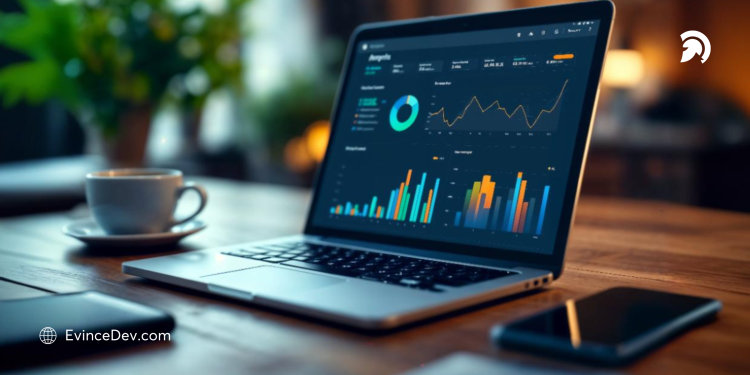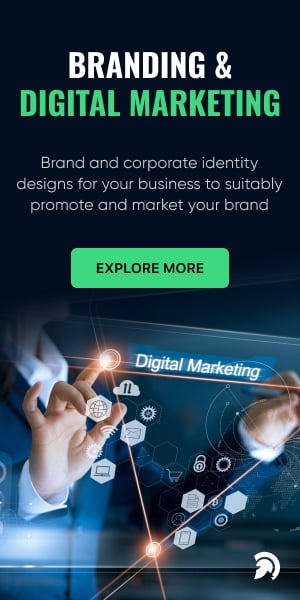In today’s digital-first economy, brands compete fiercely for every click, lead, and conversion. Pay-per-click advertising has become one of the most powerful levers for growth, helping businesses of all sizes connect with the right audiences at the right time. Yet, achieving sustainable PPC campaign performance requires more than just setting up a few campaigns and hoping for the best. It calls for strategy, optimization, and ongoing refinement grounded in real data.
This guide will walk you through the principles, challenges, and strategies that define high-performing PPC campaigns while offering actionable steps to help you elevate your digital marketing performance.
Core of PPC Campaign Performance
A PPC campaign’s success lies in how effectively it balances reach, cost, and conversions. The true potential of paid search is realized when each click is intentional and contributes to measurable business growth.
A successful campaign often depends on optimizing key performance indicators such as:
- Click-Through Rate (CTR)
- Conversion Rate
- Cost per Click (CPC)
- Return on Ad Spend (ROAS)
- Quality Score
These metrics reflect how well your ads resonate with the target audience and how efficiently your budget is being used. When all these elements align, your PPC performance marketing efforts can generate higher conversions with lower costs.
According to Statista, global ad spending in the search advertising market is expected to reach $351.55 billion by 2025.
Why PPC Optimization Is a Continuous Process
Digital marketing landscapes are fluid. Competitors shift strategies, algorithms evolve, and consumer behaviors change rapidly. The most successful brands treat PPC optimization as a continuous process rather than a one-time setup. Regularly revisiting keyword performance, bidding strategies, and audience segments ensures that campaigns stay relevant, cost-efficient, and impactful.
Common Challenges in PPC Campaigns
Even well-planned PPC campaigns face hurdles that limit their effectiveness. Understanding these common challenges can help you address them proactively and safeguard your ROI.
- Inefficient keyword targeting can drain your budget on irrelevant traffic.
- Generic ad copy fails to capture user intent or differentiate your brand.
- Poor landing page experience discourages conversions even when clicks are strong.
- Neglecting mobile optimization reduces accessibility for a large portion of users.
- Ignoring audience segmentation prevents you from reaching the right prospects.
By identifying these issues early, you can make data-backed adjustments that prevent wasted spend and improve overall campaign performance.
Building the Foundation – Key Strategies to Improve Your PPC Ads
Keyword Research and Intent Optimization
Every PPC optimization strategy begins with precise keyword selection. Understanding user intent ensures your ads appear to those who are genuinely interested in what you offer. Transactional keywords tend to convert better, while informational ones can help with brand discovery. Incorporate negative keywords to eliminate irrelevant traffic and maintain cost efficiency.
Crafting High-Performance Ad Copy
Ad copy should connect emotionally while aligning closely with user intent. The best ads speak directly to pain points and offer clear solutions. When testing your creative, focus on small yet meaningful variables such as headline structure, emotional appeal, and CTA clarity. A/B testing multiple versions helps reveal what language resonates most with your audience.
Landing Page Optimization for Conversions
A well-optimized landing page is the silent engine behind high-performing PPC campaigns. It ensures that users who click your ad find continuity, relevance, and motivation to take action.
Key focus areas include:
- Fast page loading times
- Mobile responsiveness
- Compelling visuals and trust indicators
- Clear call-to-action placement
When your landing page mirrors your ad promise, both Quality Score and conversion rates improve significantly.
Utilizing Ad Extensions to Enhance Visibility
Ad extensions can dramatically increase the visibility and engagement of your ads. They provide users with additional context and pathways to interact with your brand.
Types of useful ad extensions include:
- Sitelink extensions: Direct users to specific pages or offers.
- Callout extensions: Highlight unique selling points or limited-time offers.
- Structured snippets: Showcase product categories or services.
- Location extensions: Help local audiences find nearby branches.
Proper use of extensions not only improves click-through rates but also enhances ad relevance.
Focusing on Audience Targeting and Retargeting
Targeting the right audience is the difference between wasted clicks and qualified leads. Audience targeting allows you to narrow down who sees your ads based on demographics, interests, and behavior patterns.
The Power of Segmentation
Modern platforms like Google Ads offer robust tools for segmentation, including custom intent and in-market audiences. These options enable advertisers to focus on prospects already demonstrating purchase intent, making campaigns more cost-efficient.
Remarketing for Higher Conversions
Remarketing keeps your brand in front of users who have already interacted with your site but didn’t convert. By re-engaging this warm audience through tailored messages, you can boost conversions without increasing acquisition costs. A Google Ads company skilled in remarketing strategy can create dynamic campaigns that adapt content and offers to individual user behaviors.
Advanced PPC Optimization Techniques
Smart Bidding and Automation
Artificial intelligence is transforming PPC performance marketing by making bid management more intelligent. Smart bidding strategies use machine learning to adjust bids automatically based on contextual signals such as device, location, and time of day.
AI-powered PPC optimization services utilize algorithms like Target ROAS and Maximize Conversions to ensure that every impression contributes to your overall revenue goal. It reduces manual workload while maximizing efficiency.
Predictive Analytics and Machine Learning
Predictive analytics can identify future trends, optimize budget allocation, and uncover which audience segments are likely to convert. Integrating machine learning tools allows advertisers to adapt quickly to changes and stay ahead of the competition.
Multi-Channel PPC Performance Marketing
Relying solely on one platform limits reach. Combining Google, Bing, Meta, and LinkedIn campaigns allows businesses to expand audience exposure and improve attribution accuracy. When data from multiple channels is analyzed together, it paints a clearer picture of which efforts drive the best results.
Data-Driven PPC Optimization Strategy
Data is at the heart of every successful PPC campaign. Collecting, interpreting, and acting on performance metrics is what separates average advertisers from industry leaders.
Tracking and Analytics
Conversion tracking and analytics integration ensure that every ad click is accounted for. Tools like Google Analytics 4 and Tag Manager make it possible to measure traffic sources, engagement behavior, and conversion paths. Data Studio dashboards further simplify performance visualization for better decision-making.
Evaluating Core Metrics Beyond Clicks
Click-through rates matter, but they are not the full story. Evaluate your campaigns based on metrics that align with business outcomes.
Key indicators to monitor include:
- Cost per conversion
- Return on Ad Spend (ROAS)
- Lifetime value of a customer
- Impression share and engagement time
Analyzing these factors gives a complete understanding of campaign health and ROI potential.
Regular Optimization Checklist
Consistency is essential for PPC optimization. Use a regular review schedule to identify opportunities and maintain campaign agility.
A good PPC maintenance checklist includes:
- Weekly keyword and bid performance analysis
- Review of negative keyword lists
- Ad creative refresh based on test results
- Budget reallocation according to seasonal performance
- Landing page testing and conversion tracking validation
Following this routine helps you stay proactive rather than reactive, ensuring long-term campaign stability.
Why Partnering with a Digital Marketing Company Matters
Managing PPC campaigns effectively requires expertise, technology, and constant monitoring. Partnering with a professional digital marketing agency gives you access to skilled strategists who can oversee complex campaign dynamics while keeping ROI in focus.
Expertise and Scalability
An experienced partner brings deep analytical insights and access to advanced optimization tools that in-house teams may lack. They also offer scalability, allowing your campaigns to grow seamlessly as business goals evolve.
Benefits of Professional PPC Management
Working with experts ensures that campaigns remain aligned with your objectives while adapting quickly to market changes. Professional management includes:
- Data-backed optimization
- AI-powered bid automation
- Continuous A/B testing
- Comprehensive reporting and insights
Role of a Google Ads Company
A dedicated Google Ads company focuses exclusively on improving ad performance and visibility. They monitor Quality Scores, refine targeting, and analyze conversion paths to ensure your ad spend drives measurable results. Their proactive approach eliminates guesswork and ensures that every dollar spent contributes to business growth.
Common Mistakes to Avoid in PPC Campaigns
Even with the best tools and strategies, simple mistakes can diminish results. Avoiding these common pitfalls can make a major difference in performance:
- Ignoring negative keywords that prevent irrelevant clicks.
- Running multiple campaigns targeting the same audience.
- Using generic ad copy that lacks a unique value proposition.
- Neglecting mobile-first optimization.
- Failing to adjust bids based on performance insights.
- Small adjustments in these areas can significantly improve campaign consistency and profitability.
Final Thoughts
Maximizing PPC campaign performance is not about chasing quick wins but building systems that adapt intelligently over time. The combination of strategic planning, AI-powered optimization, and consistent analysis is what drives lasting growth.
Brands that embrace data-driven decision-making and continuous testing will always outperform those relying on outdated methods. Whether you are a startup seeking traction or an enterprise scaling global campaigns, adopting modern PPC optimization practices ensures that every click contributes meaningfully to your success.
To achieve superior performance, align with EvinceDev, a leading digital marketing company that understands the balance between human creativity and data intelligence. From smart bidding to predictive analytics, today’s PPC ecosystem offers limitless opportunities for innovation.
If you are ready to elevate your advertising results, EvinceDev’s AI-powered PPC optimization services merge technology, expertise, and insight to deliver measurable growth. The future of digital marketing belongs to those who optimize smarter, not just faster.




